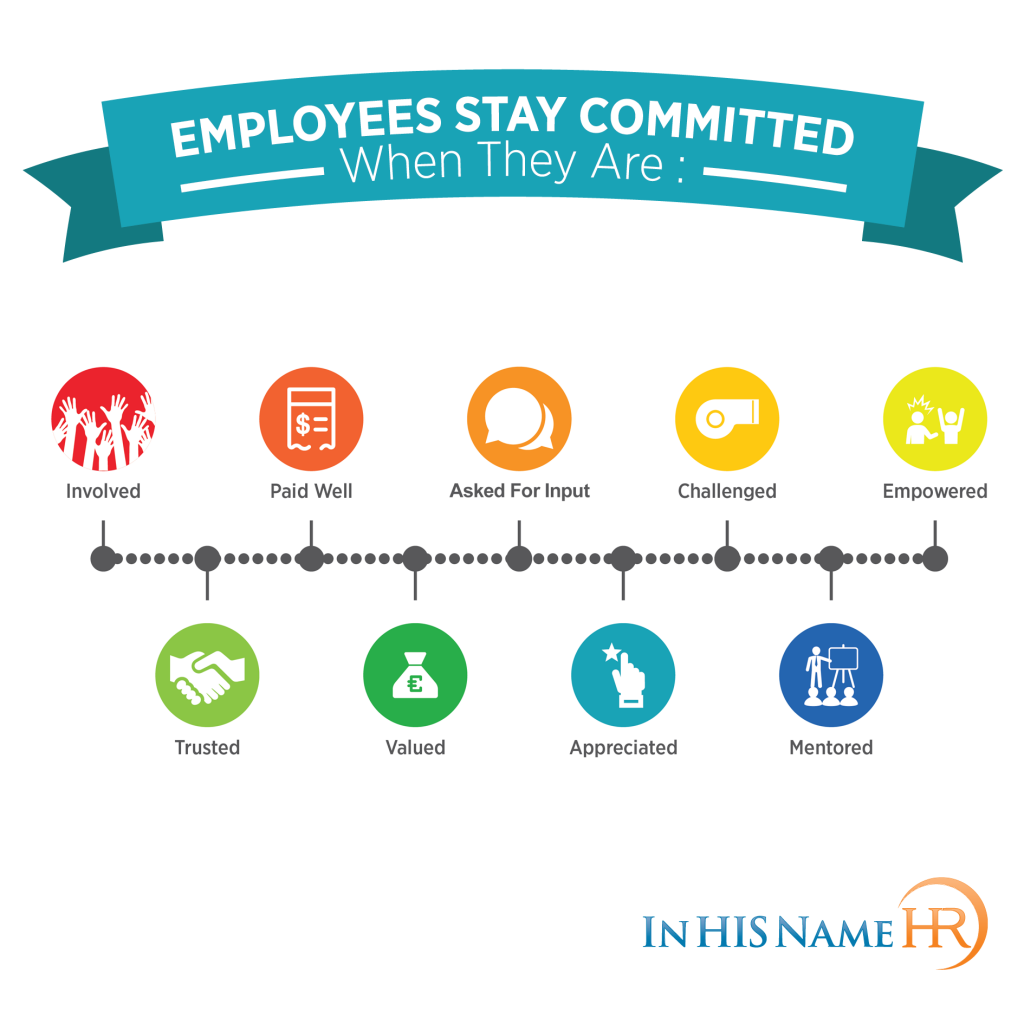Are Your Employees Mentored? Employee Commitment Series

This blog series focuses on nine areas that keep employees committed to your organization. In our opinion, employees stay committed when they are Involved, Paid Well, Asked for Input, Challenged, Empowered, Trusted, Valued, Appreciated, and Mentored.

Do You Mentor Your Employees?
There are many factors that affect employee motivation and performance in the workplace. Although often overlooked, mentoring is one such factor. Mentored employees are employees who feel valued. As such, a mentorship program in your workplace is vital to employee happiness. In fact, workplace mentorship could be the catalyst you need to help your employees drive high performance.
What Is Workplace Mentoring?
Workplace mentoring is an organized learning partnership with employees. It involves sharing information, insights, knowledge, and experiences. The aim? To increase productivity and employee value.
All successful organizations have one trait in common—great leaders. But it doesn’t end there. To build a sustainable success, leaders must share their knowledge and values with employees. Mentoring is an effective way to pass on this knowledge.
Mentoring shouldn’t be restricted only to new employees. Even tenured employees often need guidance. The personalized leadership provided by a mentoring program can yield great rewards.
Why Is Workplace Mentoring Important?
Mentorship is vital to the culture of large enterprises and small organizations alike. A study conducted by the Chronus Corporationshows that mentorship programs are popular with Fortune 500 companies. In fact, about 71% of these companies offer organized mentorship programs. Another study, among Millennials, reveals that more than 79%think mentoring is crucial to attaining their career goals. But what benefits can you derive from having a mentorship program in your workplace?
Training Employees
To get the best results from your employees, there is no doubt you need to train them well. But the training doesn’t have to be through crash courses or organized seminars. Some of the most valuable knowledge we pick up as humans comes through informal settings.
A mentorship program provides the training avenue employees need. It’s through mentoring that employees gain or update the knowledge needed to perform at work.
Infusing Leadership Skills
Leadership is one of those skills that can’t always be learned effectively in a classroom. A mentoring program, however, is a great avenue through which employees can pick up invaluable skills. This can prove to be of great benefit to the organization in the long run, as a new generation of leaders is already saddled to handle the reins. Transitions can therefore be smoother and retirement gaps easier to fill.
Reducing Attrition
From a managerial perspective, reduced attrition is the most important benefit of a mentorship program. A potential for growth and development is one of the major motivational factors that ensure employees stick with an organization.
A mentorship program gives employees a necessary sense of belonging. Employees in a mentorship program believe they have a great potential for career progression, which helps them experience their work as rewarding and keeps them contentedly right where they are.
Putting a Mentorship Program in Place
So, think about this again: Do you mentor your employees? If your answer is no, or your yes carries a tinge of uncertainty, you have yet to maximize the productivity of your employees. Organize a mentorship program today. Get your HR department involved, develop a brilliant program, and watch as you achieve results you didn’t think were possible.
___________________________
In HIS Name HR helps organizations build high-performance Human Resources programs. Visit them at In HIS Name HR.
Mark A. Griffin is the founder and chief consultant of In HIS Name HR LLC. Connect with him on LinkedIn or Twitter.
Receive Blog Updates
|
|
Thank you for Signing Up |




